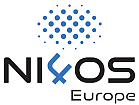Year: 2011
Type: Proceeding article
Title: Can Web 2.0 Reduce Plagiarism and Cheating
Author: Zdravkova, Katerina
Abstract: Plagiarism has existed many centuries ago. From the time when Web 1.0 turned into a host of billions of different sites, information access became practically unrestricted. As a consequence, plagiarism has become a crucial problem in all spheres of life, including education and research. Evolution of the Web from traditional Web 1.0 towards Web 2.0 stimulated a transformation of plagiarism. Furthermore, digital age introduced new ways of cheating, such as identity theft, concealment, fraud and cloning. This paper presents the experience with different types of plagiarism and cheat noticed during the realisation of several courses at undergraduate and graduate level at two universities. It continues with simple techniques used and intended to discover plagiarism, student trick to cover it, and student remarks against it. With the time, it appeared that Web 2.0 gave an opportunity to ghost writers and identity fraudsters to successfully play the role of excellent students instead of themselves. Unlike plagiarism, there are still no tangible evidences proving the suspicion of these two kinds of cheat. We conclude that the obviousness of Web 2.0 resulted in the reduction of individual external and internal plagiarism. Unfortunately, it inaugurated new types of cheating. While we decide which of two evils is worse, we will stick to traditional oral examination as a best way to make students at least learn what they plagiarised or their identity clones produced in their name.
Publisher:
Relation: 8th Conference on Informatics and Information Technology with International Participation (CIIT 2011)
Identifier: oai:repository.ukim.mk:20.500.12188/24285
Identifier: http://hdl.handle.net/20.500.12188/24285


